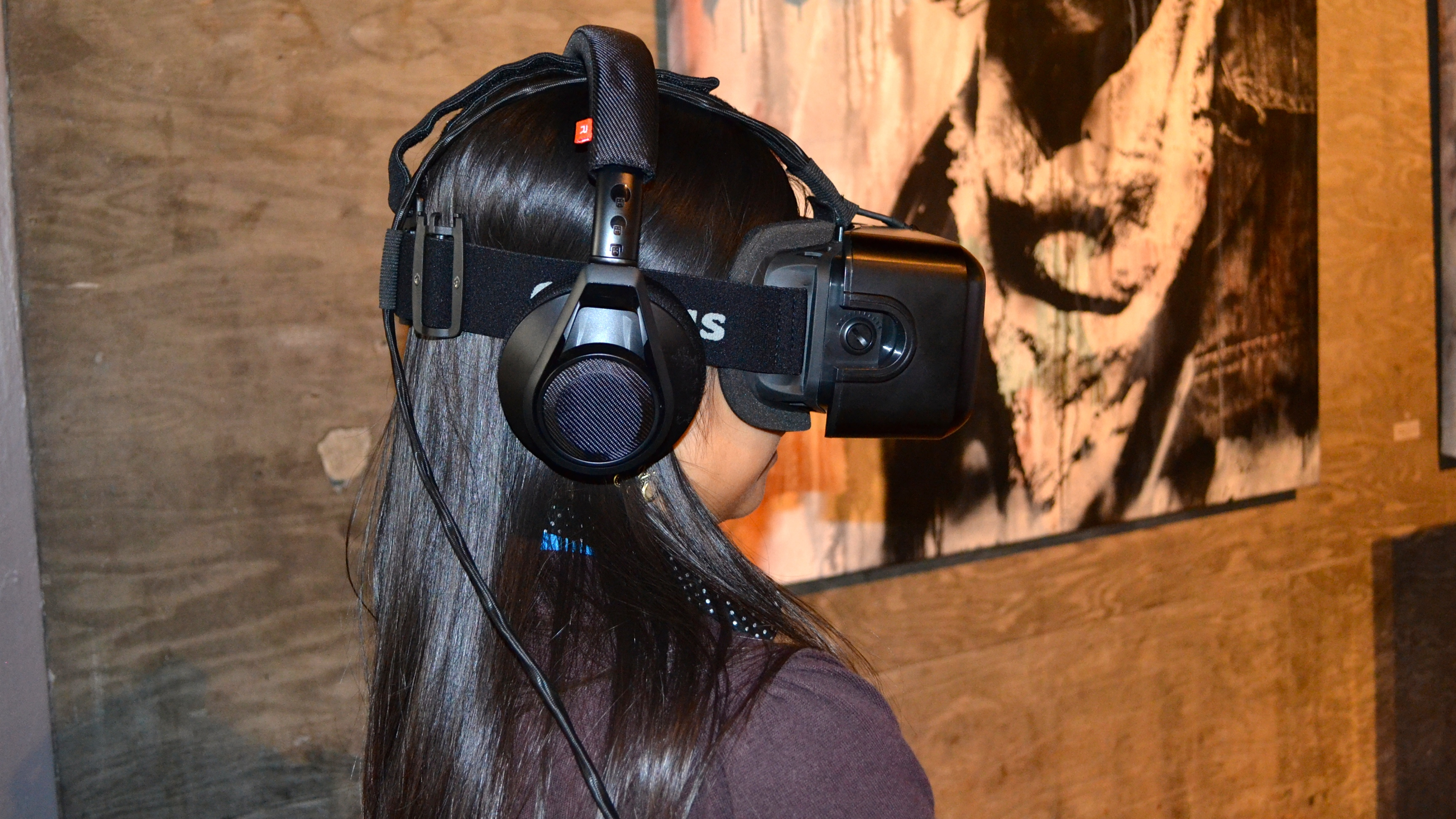What Facebook's Oculus buy means for the leader in VR
Please don't screw up a good thing, Facebook

It still hasn't completely sunk in that Facebook bought Oculus, maker of the Oculus Rift VR headset. A social media marriage with virtual reality? It's a head-scratcher that's sure to make the masses furious, confused and compelled to take up arms - meaning we'll probably see a barrage of snarky internet memes for awhile.
The deal struck between the two companies is worth approximately $2 billion,(about £1.2b, AU$2.1b), and an additional $300 million (about £181m, AU$327m) in earn-out cash and stock will be paid if Oculus hits "certain milestones."
With such large sums of dough being doled out, my immediate thought about Facebook buying Oculus is simply that it's an astoundingly bad idea. It reeks of dump trucks full of easy money for a burgeoning start-up, which admittedly makes sense with the big dogs like Sony's Project Morpheus in the picture and Microsoft's wishy-washy VR dabbling.
But in all honesty, virtual reality needs as much time in the limelight as it can get if it wants to stay relevant and not fade away like Nintendo's Virtual Boy, and with the power of Facebook behind it, Oculus is bound to get plenty of air-time. However, relevance doesn't necessarily mean opting for a social media company acquisition is the right answer.
So is it the right move ... or not?
Public opinion of Oculus is generally high thanks to its modest Kickstarter beginnings. We also can't forget Palmer Luckey's early days participating in MTBS forums (Meant to Be Seen) and John Carmack of Doom fame joining the team, furthering the VR startup's popularity. It's a textbook tech fairy tale story about the underdog slowly rising to fame.
The same can be said for Facebook's own humble Harvard inception. Both companies have the entrepreneurial spirit that drives the tech industry - but why do we all roll our eyes at the thought of Facebook likes, posts and its numerous layout changes?
There's no doubt that Facebook's numbers are big and that its user base is massive - heck everyone and their grandma is on "the Facebook." Yet the mention of the "F" word leaves a dirty taste in the mouth.
Sign up for breaking news, reviews, opinion, top tech deals, and more.
We all use it but we all abuse it, too. The prevalence of social media has become a permanent fixture in our lives, and arguably has been more negative than positive. After all, where else did the selfie generation develop? And the need to post every mundane aspect of a morning routine? Or more seriously, the addictive, alienating effects of being on the site all the time?
This makes Facebook CEO Mark Zuckerberg's determination to bring Oculus on board as a means to further the social connection, or in his own words during an analyst call, "connect the world ... in entirely new ways" less exciting than a site redesign.
No one wants to feel that familiar Facebook animosity for a future-forward device that has such promising capabilities. Or, more frankly, we don't want to see Facebook screw up a good thing.
Really. Please don't ruin virtual reality
To be fair, Zuckerberg did say that Oculus will remain an individual operation and will stay in its Irvine, Calif. headquarters to continue tinkering away on the head mounted display. But it's clear that Zuck and Co. have big plans for the device as well since the CEO stated VR has "the potential to be the most social platform ever."
He mentioned sports, education, doctors visits and shopping as just a few of the virtual experiences that are a goggle away with an Oculus at home. This does match up with Oculus Rift's own goals - to bring immersive VR to every household - but vision is one thing and execution is another.
We see what Facebook wants, but from how the social media platform has evolved, it just doesn't look very promising.
Regardless, if there's one good thing that must be said, virtual reality is an exciting space that deserves more attention. Meaning if Facebook has to buy Oculus Rift for VR for people to start noticing, so be it. As long as it opens doors for other companies to join the fold and make it big.